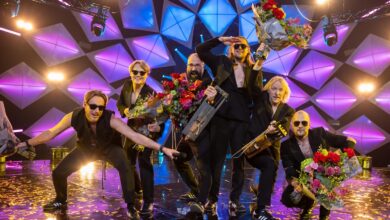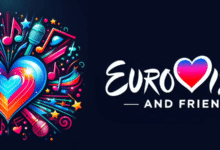By the way, what exactly is the EBU, which organises Eurovision?
Every year in May, Europe, but not only Europe, comes together to choose the best song, and this has been going on since 1956. Eurovision, but in this article let's be precise, the Eurovision Song Contest, brings together millions of television viewers across Europe and far beyond. With its incredible performances, iconic artists and passionate debates, Eurovision has become a popular fixture in May. In almost 70 years, only a virus has derailed the machine in 2020. Fortunately, temporarily.
And behind this spectacle, let's face it, unique in the world, sometimes imitated, never equalled, an organisation is at work to ensure that it runs smoothly. It's an organisation we hear a lot about, and often criticise, but don't really know: the European Broadcasting Union (EBU), supported by the Reference Group.
Who are these key players in the Eurovision Song Contest? What exactly is their role, and how do they influence the Eurovision Song Contest as we know it today? Take a look at the institution that oversees the world's biggest music show.
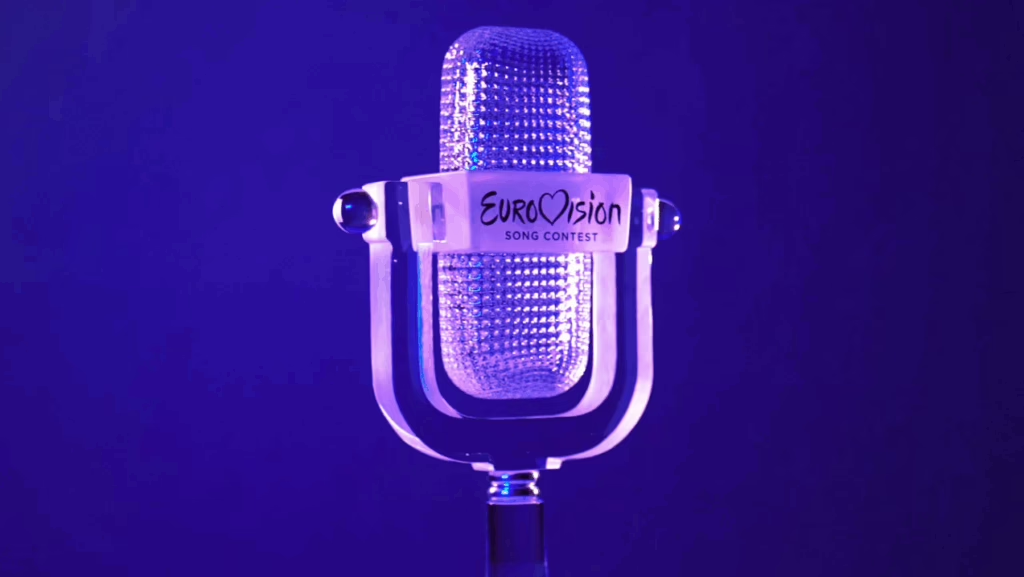
The EBU: An organization at the service of European cooperation
The origins of the EBU...
Founded in 1950 in the aftermath of the war, the EBU has its roots in the UIR (Union Internationale de Radiophonie) created in 1925 to encourage cooperation between European broadcasters and facilitate the exchange of content between public service media. At that time, broadcasting was becoming an essential means of communication and information, and it was essential to build alliances and forge links to offer content.
The birth of the Eurovision network
Since its creation, the EBU has made programmes produced in each country available to its members. In particular, so-called universal programmes, revolving around news, music and sport. The result was Eurovision, an interconnected technical network designed to facilitate the exchange and broadcasting, live or recorded, of media content between EBU members. Initially focused on Europe, the network has gradually expanded worldwide. One of their most memorable moments? The live broadcast of the coronation of Queen Elizabeth II in 1953.
With advances in technology, the » broadcast network remains, but it is provided by an EBU subsidiary called Eurovision Services which has 250 points of presence around the world and transmits more than 12,000 hours of programmes a year to its customers.
The role of the EBU today
Today the EBU is the world's leading alliance of public service media. It is chaired by Delphine Ernotte, President of France Télévisions. The EBU aims to foster cooperation between public service radio and television broadcasters in order to promote cultural diversity, ensure quality media coverage and guarantee access to information throughout Europe. Together with its members, it reaches almost one billion people worldwide. The EBU is also a key player in the management of copyright, the sharing of audiovisual content, the establishment of legal frameworks around public services and the broadcasting of major events such as the Olympic Games or the FIFA World Cup.
However, it is probably the Eurovision Song Contest, or Eurovision for short, that is its most high-profile event, or at least the one that best embodies the extent of its influence and its role as a federator and catalyst of European culture.
EBU members and wHaaAt AuStRaLiA at eUroVIsIoN LoL !!??? xDD
The EBU now has over 100 members, mainly public television and radio channels across Europe. But did you know that its members also include non-European countries such as Israel, Australia and Morocco?
So let's get straight to the point where the elephant in the room is hiding. EBU members include virtually all European broadcasters (the BBC in the UK, France Télévisions in France, etc.), as well as broadcasters located outside Europe, in Algeria, Azerbaijan, Israel, etc. In fact, today it is all the broadcasters located in what is known as the 'European Union'. In fact, today it is all the broadcasters located in what is known as the "European Union" that are involved. European Broadcasting Area » defined by the ITU (International Telecommunication Union) which are eligible for EBU membership.
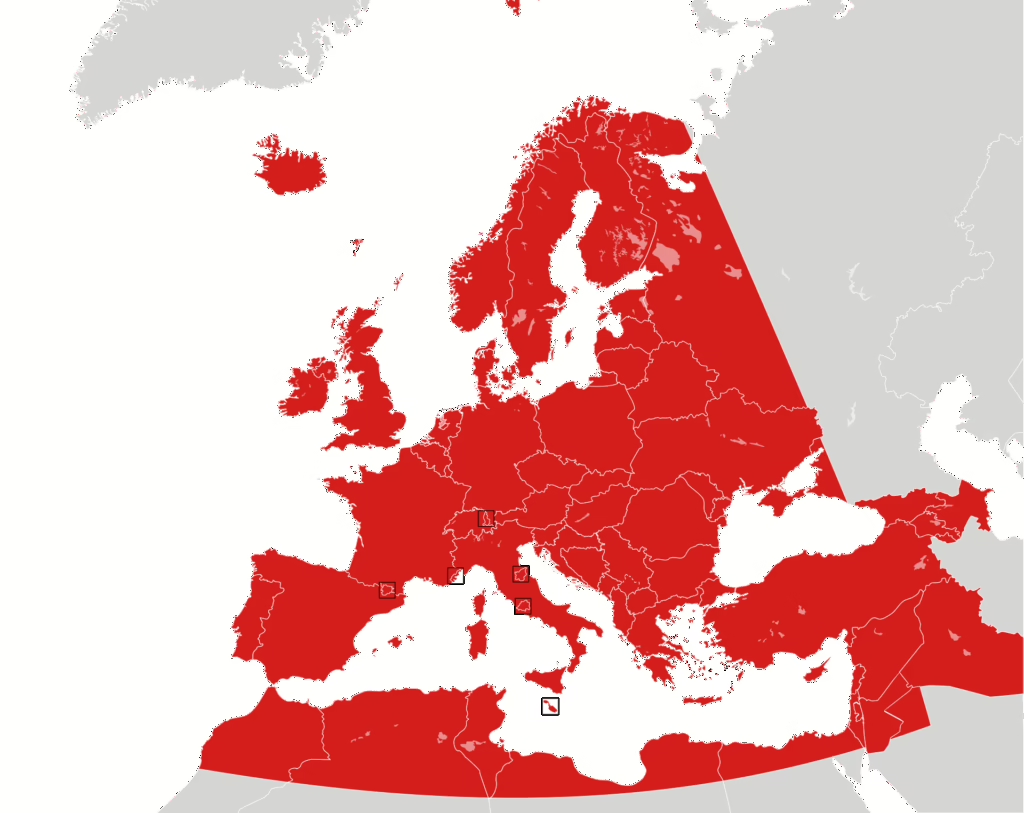
For the others, the EBU is made up of so-called "» affiliate members" such as NHK in Japan, SMG in China and ABC and SBS, two broadcasters in Australia. The EBU today has 113 members in 56 countries and 31 affiliates in 20 countries, representing nearly 2,000 television, radio and online channels and services.
The origins of Eurovision (the song contest)
In the 1950s, Europe was rebuilding and seeking reconciliation. Two ideas sprang from this. The first came from Charles de Gaulle, the French president at the time, who suggested creating a Europe-wide game show to strengthen the friendship between France and Germany. It was Guy Lux, creator of the TV show Intervilles, who proposed the concept to ORTF (Office de Radiodiffusion-Télévision Française), the French public service broadcaster at the time (to put it simply). The programme was proposed to the EBU, which organised "Jeux Sans Frontières »" from 1965 to 1999.
But it was the Eurovision song contest, inspired by the Sanremo Festival in Italiy, which met with the success we know today. We know the rest. Well, we'll remind you. 24 May 1956, the first Eurovision Song Contest. In Lugano, Switzerland. Seven countries took part. Each country entered two songs. And despite the presence of ten national broadcasters, virtually no recordings survive of this historic edition of Eurovision.
The Guardians of the Eurovision Song Contest
The Eurovision Song Contest used to be run mainly by the EBU and a technical team, but with the growing popularity of the contest and the stakes associated with its broadcasting and organisation, it became clear that a more formal structure was needed.
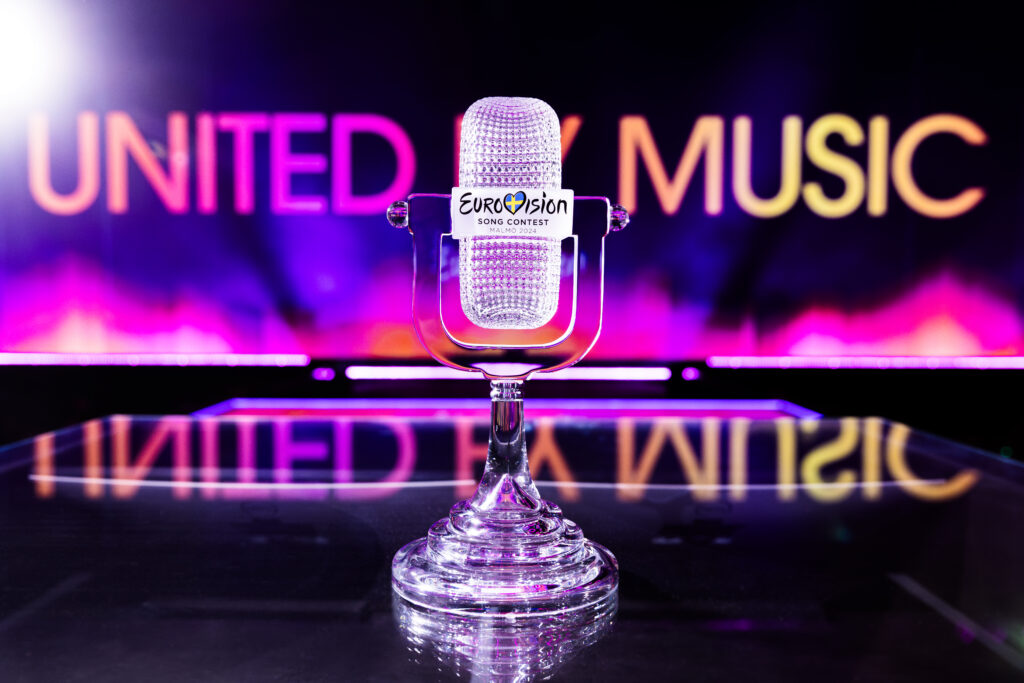
The Reference Group
The Eurovision Song Contest Reference Group was set up in 1998. It plays a major role in the organisation and, more generally, the governance of the competition, representing the participating broadcasters. It monitors the contest's development and the modernisation of its format, as well as financing it and overseeing its preparation each year with the host broadcaster.
The Reference Group is chaired by Bakel Walden (SSR SRG) (who will be replaced by Ana Maria Borda of RTVE after the 2025 edition) and is made up of several members elected from among the heads of delegation of the participating countries, executive producers of past editions, the executive producer of the host country, and two members invited for their expertise, as well as the executive supervisor. To date:
- Adielsson (SVT)
- Rachel Ashdown (BBC)
- Felix Bergsson (RÚV)
- Ana Maria Bordas (RTVE)
- Carla Bugalho (RTP)
- Moritz Stadler (SSR SRG)
- Tomislav Stengl (HRT)
- Alexandra Wolfslast (NDR)
- Martin Österdahl (EBU)
The elected members represent the voice and needs of broadcasters, while the producers bring their practical experience to ensure the quality of the programme. Guest members bring their expertise (branding, communications, production, etc.) to the group. The Executive Supervisor ensures that the rules are respected and coordinates the entire process. Together, they approve the preparation of the competition, its financing and reputation, and ensure that the host broadcaster prepares the show.
The Executive Supervisor
The Executive Supervisor can be considered the "» boss" of the Eurovision Song Contest. He oversees the entire event on behalf of the EBU and the Reference Group and is crucial to the smooth organization and preparation of the contest. He works closely with the Reference Group to ensure compliance with the rules and the smooth running of the event. He leads the team responsible for preparing and running the show, while working closely with other stakeholders, such as the Reference Group and the host broadcaster. If things go wrong? It's up to him.
New in 2025: the Director of the Eurovision Song Contest
In response to criticism of the 2024 edition, a few months ago, the EBU created a new role: Director of the Eurovision Song Contest, which is intended to reduce the workload of the Executive Supervisor. He will concentrate more on the production of the contest, relations with the delegations and day-to-day aspects. The Eurovision Song Contest Director will supervise the Executive Supervisor as well as a new role of Eurovision Song Contest Brand Manager.
Eurovision, a model that dreams bigger?
While the EBU and the Eurovision Song Contest are historically European projects conceived after the war in a spirit of reconciliation and unity, the EBU also has the ambition of extending this model beyond its historical area. And this export dream has taken several forms, not least by trying to reproduce the recipe of its flagship musical event.
In 2016, the Eurovision Asia Song Contest was announced, a version of the contest designed for the Asia-Pacific region, in which Australia, China, Japan, South Korea and the Maldives would have competed (...). The Australian broadcaster SBS applied to organise it, but unfortunately the project was postponed several times and finally abandoned in 2021 due to a lack of agreement with all the broadcasters. Beyond the language barriers, the historical context had also changed: the post-war impetus to reunite peoples is no longer the same today, and the interests of the countries are perhaps less convergent.
The EBU has also attempted to export the Eurovision contest to the United States in 2022 with the American Song Contest. Inspired by the Eurovision format, produced by NBC, broadcast over 8 episodes (5 qualifying rounds, two semi-finals and a final) and presented by Snoop Dogg and Kelly Clarkson, the American Song Contest brought together artists representing each of the 50 American states. Although the concept has been adapted, it hasn't exactly been a huge success. Eurovision's characteristic "kitsch »" feel and its musical diversity are aspects that do not easily fit into the rather formatted music and television landscape of the United States, where the self-mockery, humour and disinterested energy needed for this type of competition are lacking, and where the television space is already saturated with teleshows and similar competitions.
You can see the winning performance here:
These initiatives show that Eurovision, as well as being an annual event, has become a cultural model of cooperation and musical celebration that the EBU is seeking to bring to life in other latitudes. And who knows what the future holds? 🌍✨
Although the EBU is often mentioned in connection with Eurovision or the controversies that are part of the season each year, the organisation plays a much broader role than that of the competition organiser, which is only one facet, albeit the most visible to the general public, of its commitment to public media and culture.
In this way, the EBU ensures the continuity of many initiatives that go far beyond the competition and ensure the smooth functioning of the European audiovisual landscape.



